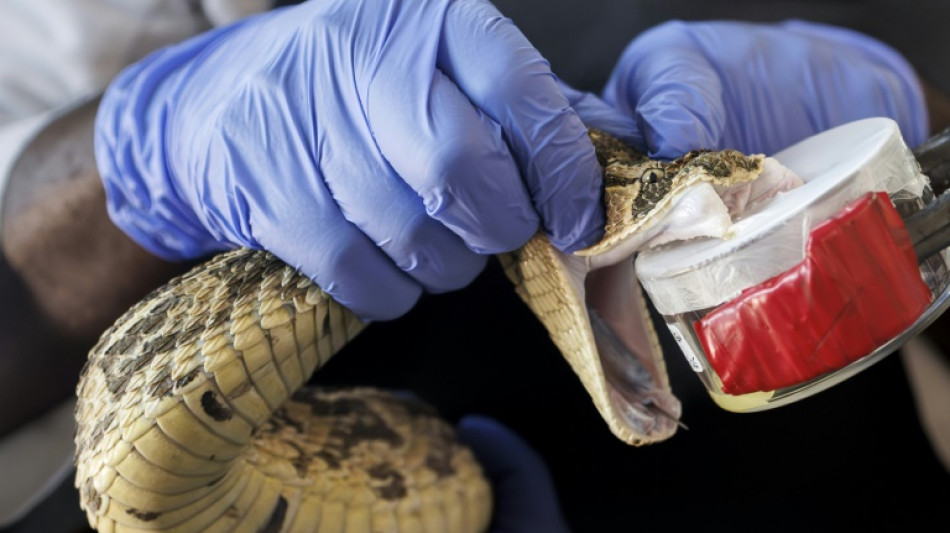
-
 Blackout plunges Spain into chaotic night of darkness
Blackout plunges Spain into chaotic night of darkness
-
Convicted cardinal confirms he will sit out conclave

-
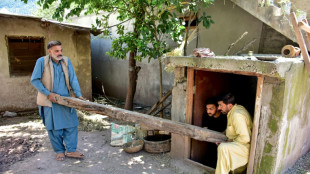 Kashmiris fortify bunkers anticipating India-Pakistan crossfire
Kashmiris fortify bunkers anticipating India-Pakistan crossfire
-
Adidas warns US tariffs to push up prices

-
 Markets boosted as Trump softens tariff pain for auto firms
Markets boosted as Trump softens tariff pain for auto firms
-
Suryavanshi, 14, dubbed 'next superstar' after batting records tumble

-
 Australian doubles player Purcell accepts 18-month doping ban
Australian doubles player Purcell accepts 18-month doping ban
-
Kashmir attack unites political foes in India, Pakistan
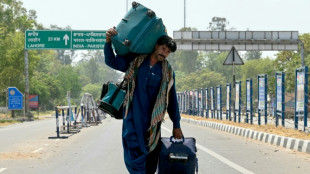
-
 Croatia hotel toasts dizzying century of stars, sovereigns and champagne
Croatia hotel toasts dizzying century of stars, sovereigns and champagne
-
Kenya's desperate need for more snake antivenom
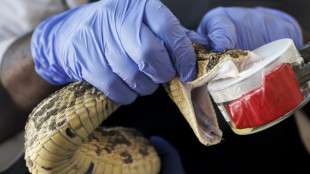
-
 Les Kiss in frame with Wallabies set to name new coach
Les Kiss in frame with Wallabies set to name new coach
-
Cavaliers scorch Heat, Warriors down Rockets in thriller

-
 Opposition wins Trinidad and Tobago election, returning Persad-Bissessar as PM
Opposition wins Trinidad and Tobago election, returning Persad-Bissessar as PM
-
Study sheds light on origin of Australia's odd echidna

-
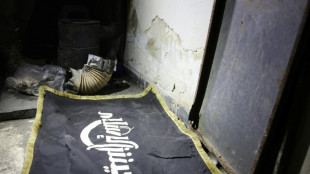 France tries Syrian Islamist rebel ex-spokesman on war crime charges
France tries Syrian Islamist rebel ex-spokesman on war crime charges
-
Trump boasts of 'fun' 100 days, but Americans disenchanted

-
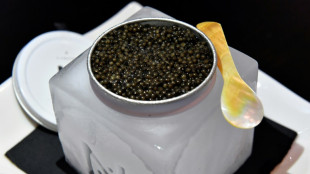 Elitist no more, caviar is turning casual
Elitist no more, caviar is turning casual
-
Amnesty accuses Israel of 'live-streamed genocide' against Gaza Palestinians

-
 Inter slump puts season at risk ahead of daunting Barca trip
Inter slump puts season at risk ahead of daunting Barca trip
-
Power returns to most of Spain, Portugal after massive blackout

-
 'I have hope': Vietnam Babylift survivor's search for birth mother
'I have hope': Vietnam Babylift survivor's search for birth mother
-
US climate assessment thrown into doubt as Trump dismisses authors

-
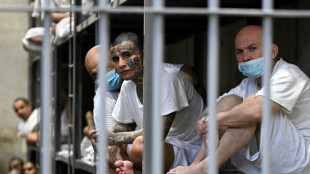 Venezuelan president slams US over little girl's 'abduction'
Venezuelan president slams US over little girl's 'abduction'
-
Hard-right upstarts eye big gains in local UK polls

-
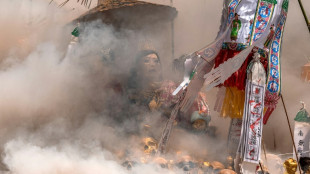 Skulls, smoke and spirits: Thai ceremony for the unclaimed dead
Skulls, smoke and spirits: Thai ceremony for the unclaimed dead
-
Canada's Carney: political newcomer who says he's best in a crisis

-
 Cavaliers scorch Heat to seal series sweep
Cavaliers scorch Heat to seal series sweep
-
Dead salmon create election stink on Australian island
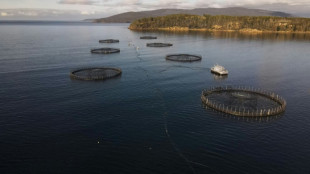
-
 Mic check: Singapore's podcast boom amplifies opposition voices
Mic check: Singapore's podcast boom amplifies opposition voices
-
Markets rise as traders gear up for earnings, key jobs data

-
 Congress passes 'revenge porn' ban, sending it to Trump
Congress passes 'revenge porn' ban, sending it to Trump
-
Spain and Portugal work to restore power after massive blackout

-
 Less-thirsty rice offers hope in drought-stricken Chile
Less-thirsty rice offers hope in drought-stricken Chile
-
Yamal stardust could give Barca edge on Inter Milan

-
 Coca-Cola Europacific Partners plc Announces Q1 Trading Update & Interim Dividend Declaration
Coca-Cola Europacific Partners plc Announces Q1 Trading Update & Interim Dividend Declaration
-
Trump targets US 'sanctuary cities' in migrant crackdown

-
 Mexico agrees to send water to US after Trump threatens tariffs
Mexico agrees to send water to US after Trump threatens tariffs
-
Amazon launches first Starlink-rival internet satellites

-
 US lost seven multi-million-dollar drones in Yemen area since March
US lost seven multi-million-dollar drones in Yemen area since March
-
Bucks blow as Lillard suffers torn Achilles: team

-
 Putin orders three-day truce amid new US warnings
Putin orders three-day truce amid new US warnings
-
Real Madrid's Ancelotti agrees Brazil deal - reports

-
 ChatGPT adds shopping help, intensifying Google rivalry
ChatGPT adds shopping help, intensifying Google rivalry
-
Global stocks mixed amid trade hopes as markets await tech earnings

-
 Commanders heading back to D.C. after inking $3.7 bln stadium deal
Commanders heading back to D.C. after inking $3.7 bln stadium deal
-
US warplane falls off aircraft carrier into Red Sea

-
 Feisty Arteta urges Arsenal fans to 'bring boots' to PSG Champions League clash
Feisty Arteta urges Arsenal fans to 'bring boots' to PSG Champions League clash
-
Bucks blow as Lillard suffers ruptured Achilles: reports

-
 No power, no phone, no transport -- Spain in a panic
No power, no phone, no transport -- Spain in a panic
-
US warplane went overboard into Red Sea: Navy


Kenya's desperate need for more snake antivenom
Writhing in pain on a hospital bed in a Kenyan coastal town, teenage snakebite victim Shukurani Konde Tuva faced the grim reality of his left leg from above the knee being amputated.
The 14-year-old was bitten by a puff adder -- a venomous snake and the most common snakebite in sub-Saharan Africa -- while eating outdoors in his village near the town of Malindi more than a month ago.
His family rushed him to hospital two hours away by motorbike, but the antivenom he received did not help.
"My son's leg is totally rotten and maggots are even emanating from it. They'll have to cut it," said his distraught mother, Mariamu Kenga Kalume.
Some 5.4 million people are bitten by snakes each year globally and roughly half are poisoned by venom, according to World Health Organization (WHO) data.
Up to 138,000 people die and 400,000 suffer permanent physical effects, though the WHO says the numbers are a "gross underestimation" since an estimated 70 percent of cases go unreported.
Traditional beliefs and myths skew the data as some victims turn to home-grown remedies or attribute bites to voodoo "sent by their enemies" instead of seeking medical care.
- 'Snake stone' -
A few kilometres (miles) from where Shukurani lay in pain, traditional healer Douglas Rama Bajila showed AFP the concoctions he uses to "suck out" venom.
One popular remedy is the "snake stone", made from a cow's bone and sold for about $1.
Bajila said it can be reused multiple times: it simply needs to be soaked in milk for a few hours to "recharge".
One was placed on Shukurani's leg as he was transported to hospital but unfortunately fell off along the way, his mother said.
Experts worry that by using traditional snakebite remedies, patients are losing precious time but they are popular because antivenom treatments are expensive.
Antivenoms cost up to 8,000 shillings (about $62) per vial, and some patients require as many as 20 doses.
Ruth Kintalel, 30, from a pastoralist community in Kajiado county near the capital Nairobi, said she spent over five months in hospital after a red spitting cobra bit her in her sleep.
"My husband sold our livestock to cover the rising hospital bill," said Kintalel, who is still paralysed in her right arm seven years later.
- 'Bad reactions' -
Experts say Kenya receives between 10,000 and 30,000 vials of antivenom per year and needs 100,000.
Antivenom is made by "milking" venom from the fangs of snakes, which is then diluted and injected in small doses into animals such as horses, which produce antibodies that can be extracted for use in humans.
Using snakes from different regions, even of the same species, can reduce the effectiveness of the antivenom and cause "really bad reactions", said Kyle Buster Ray, a curator at the Watamu Snake Farm on the Kenyan coast.
Kenya's stock of antivenom is not always effective because much comes from other countries like India, he said.
His farm houses over 400 venomous and non-venomous snakes and seeks to re-establish faith in antivenom that has been undermined by too many shoddy treatments.
It offers free antivenom to critical cases locally, but stocks are limited.
The farm also trains communities in life-saving snakebite responses.
During a session attended by AFP, about half the community said they had been bitten at least once, and nearly all had initially turned to traditional medicines.
Many showed signs of paralysis, with one suffering partial blindness.
- 'Trauma' -
In Nairobi, the Snakebite Research and Intervention Centre within the Kenya Institute of Primate Research is working on an antivenom specific to the country and applicable to multiple species.
Valentine Musabyimana, a research fellow at the institute, said they "are aiming for an antivenom where a patient will require only one vial with great potency".
Government subsidies should make it affordable, she hopes, though it is expected to take about two years before the antivenom is available.
That is too late for 14-year-old Shukurani.
At the snake farm, Ray warned that the boy faced psychological as well as physical consequences.
"Someone has watched their limb completely rot... there's a lot of mental trauma," Ray said.
O.Norris--AMWN



